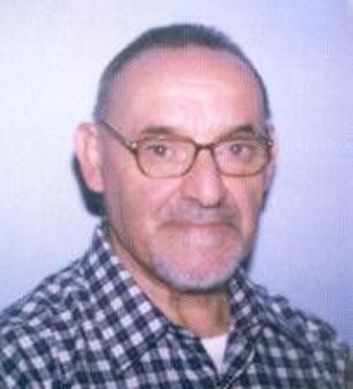Daniel Comboni
Comboni Missionaries
Institutional area
Other links
Newsletter
In Pace Christi
Cattaneo Giovanni
Bro. Giovanni Cattaneo was born in Milan on 18 April, 1930. Interestingly, he wrote of the years of his youth: “Already in 1948, while I was in Milan, I was studying and working in building construction. I had received my education from the Salesians and I felt the desire to belong ever more to God. In 1957, having come to learn of the Comboni Institute and of Africa, I decided to leave the building industry business of my father and all its wealth, to follow Christ and build in mission lands, for love alone”.
He entered the novitiate in Gozzano in 1951, and took first vows in 1953. His apprenticeship proved very useful. Bro. Giovanni, in fact, was to be mainly involved in construction work: in South Sudan (where he was sent in 1955 and remained until 1964, the year when all the missionaries were expelled), in Spain (seven years), and in Congo (at Bamokandi). Bro. Giovanni was also in Portugal, in Paris (three years) and then in Italy. In some of the places where he worked he was also in charge of missionary animation. He was local bursar in Paris and Limone (seven years). He also worked in Verona, Padua and finally he went to Milano, mostly for treatment.
Bro. Giovanni wrote: “As a Comboni Brother I can say that I feel completely fulfilled and that I lived my missionary vocation completing together with my priest confreres that which the Church does in the world in its mission of evangelisation and of human promotion. In my service, the Lord gave me the opportunity to serve my brothers as a builder (churches, water wells, hospitals), and also as an infirmarian and in the apostolate to the youth and children”.
We may sum up his existence by saying he was a missionary Brother who loved the mission and others with his hands, his heart and his life.
The part which follows is taken from the beautiful testimony of Bro. Duilio Plazzotta. “I met Bro. Giovanni for the first time in Paris, at the end on 1979. I was getting ready to go to what was then called Zaire by learning some French. Bro. Giovanni, on the contrary, had had to leave Zaire because of a heart attack. Having recovered fairly well, he was invited by his superiors to go to the scholasticate of Issy les Moulineaux to continue his recovery and lend a hand to the young men by taking charge of the kitchen. When I left for the Congo I was able to see for myself the works he carried out (especially the beautiful and original church at Ngilima) and to listen to the favourable testimonies of confreres concerning him.
Then, in 1992, we found ourselves in the community of the Mother House in Verona and we stayed together for twelve years. One aspect of his personality, which always struck me, was the consideration he had for the sick confreres. He had taken it upon himself to attend to some in a special way, devoting all the time necessary to this task, without a thought for himself or his damaged heart.
He took care of Bro. Bruno Barbiero, a bad case of Alzheimer’s, with maternal care. Bro. Bruno recognised Bro. Giovanni’s face and voice and when he was frightened or agitated by the phantoms of his disease, Bro. Giovanni put him at his ease.
Another thing was the way he abandoned himself into the hands of God when faced with suffering and death. Although his continual and serious cardiac problems prevented him from returning to the missions and to carry out the activities he would have liked, he did not let them get him down and he was always serene, even when in danger of death. He was always in pain but he never complained. One day his heart stopped more than once.
For many years he had spent three hours a day in prayer. He also had a beautiful devotion to Our Lady.
Bro. Giovanni was a great friend to me and an inspiring example especially for his consideration for others, the sick in particular and his love for Christ crucified”.
He died in Milano on 6 December, 2010.
Fr. Lino Spezia, during his funeral sermon, spoke of Bro. Giovanni as a man of God for his simplicity, capable of reaching the hearts of all. He was the man who was attentive to God and to others, one who knew how to be close to the lonely who felt they were not understood or appreciated. He was proud to be a missionary Brother because he gave testimony to a vocation that was fully realised, despite his worn out heart, his many operations and periods in hospital.

